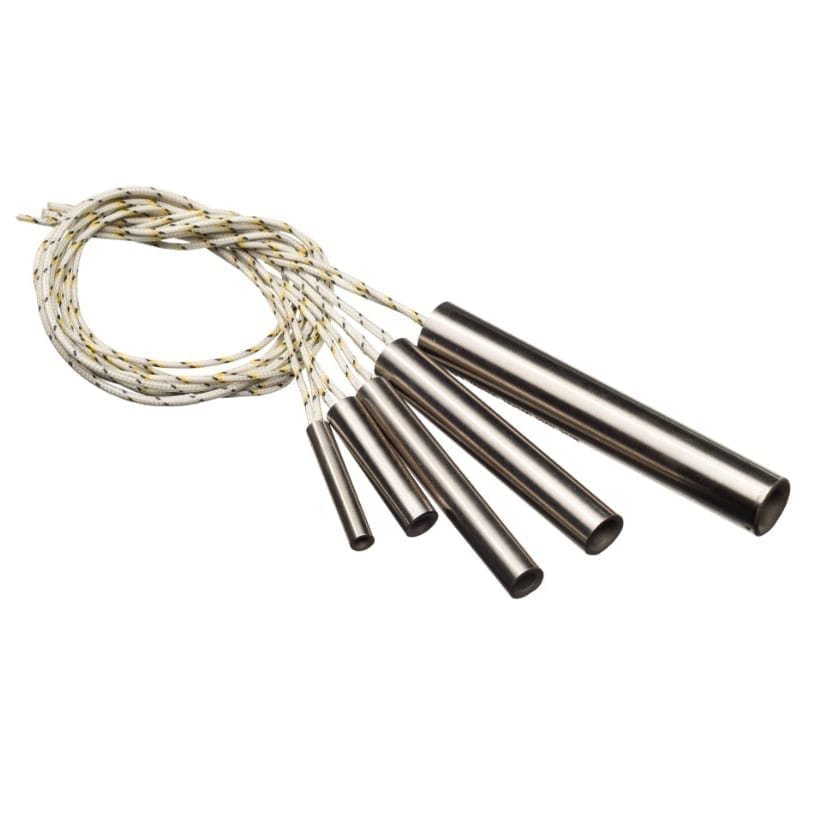CO2 Heaters: Find the Perfect Model for Your Needs

CO2 heater manufacturers offer a variety of models to suit different applications. Choosing the right CO2 heater can significantly impact your operation’s efficiency and safety. Understanding the key factors and available options is crucial. Let’s explore the different types of CO2 heaters, their functionalities, and how to select the ideal model for your specific needs. Understanding CO2 Heaters A CO2 heater is a device designed to maintain a consistent temperature for carbon dioxide gas. It prevents the gas from cooling and condensing, which can lead to operational issues. These heaters are commonly used in welding, industrial processes, and other applications where CO2 gas is essential. Types of CO2 Heaters There are primarily three main types of CO2 heaters: 1. Inline CO2 Heaters Inline CO2 heaters are installed directly into the gas line. They offer continuous heating of the gas as it flows through the system. These heaters are ideal for applications requiring consistent and precise temperature control. Benefits: Efficient, compact, and easy to install. Drawbacks: Can be more expensive than other options. 2. Regulator-Mounted CO2 Heaters These heaters are integrated into the CO2 regulator. They provide localized heating to prevent moisture buildup within the regulator itself. Benefits: Cost-effective, simple to use, and protects the regulator. Drawbacks: Limited heating capacity compared to inline heaters. 3. External CO2 Heaters External CO2 heaters are standalone units that heat the gas before it enters the system. They offer flexibility in terms of placement and heating capacity. Benefits: High heating capacity, versatile, and easy to maintain. Drawbacks: Larger footprint and potentially higher installation costs. Factors to Consider When Choosing a CO2 Heater Several factors influence the selection of a CO2 heater: Gas Flow Rate: The volume of CO2 gas passing through the system determines the required heater capacity. Temperature Requirements: The desired gas temperature is crucial for proper operation. Installation Space: Available space for the heater will affect the choice of model. Budget: Consider the initial cost and ongoing operating expenses. Safety Considerations: Ensure the heater complies with safety standards and regulations. Additional Features and Considerations Some CO2 heaters offer additional features to enhance performance and convenience: Temperature Control: Adjustable temperature settings for precise control. Safety Features: Overheating protection and thermal cut-off switches. Compact Design: Space-saving options for limited areas. Easy Installation: User-friendly design for quick setup. Maintenance and Safety Proper maintenance is essential for the longevity and efficiency of your CO2 heater. Regular cleaning, inspection, and replacement of worn parts are crucial. Safety should always be a top priority. Follow the manufacturer’s guidelines and adhere to safety regulations. Wrap Up Selecting the right CO2 heater is essential for optimal system performance and efficiency. By understanding the different types, considering key factors, and prioritizing safety, you can make an informed decision. Investing in a high-quality CO2 heater can significantly improve your operation’s productivity and reliability.
Cartridge Heaters with Thermocouples: A Comprehensive Buying Guide

Cartridge heater with thermocouple is a crucial component in many industrial and commercial applications. Selecting the right one can be daunting due to the various options available. This guide will equip you with essential knowledge to make an informed decision. Understanding Cartridge Heaters with Thermocouples A cartridge heater is a cylindrical heating element inserted into a drilled hole to provide localized heat. Integrating a thermocouple into the heater offers precise temperature control. Key Components: Sheath: The outer protective layer, often made of stainless steel, protects the heating element. Heating Element: Converts electrical energy into heat. Magnesium Oxide: Insulating material between the heating element and sheath. Thermocouple: Measures the heater’s temperature and sends signals to a controller. Factors to Consider When Buying Several factors influence the choice of a cartridge heater with a thermocouple: Wattage: Determines the heater’s power output. Higher wattage for faster heating, lower for delicate applications. Voltage: Matches the available power supply. Common options include 110V, 220V, and 240V. Diameter and Length: Ensure the heater fits the target application’s hole size. Thermocouple Type: Choose between J, K, or other types based on temperature range and accuracy needs. Sheath Material: Select based on the environment, considering factors like corrosion resistance and temperature limits. Lead Wire Length: Ensure sufficient length for connection to the controller. Mounting Style: Consider options like straight, angled, or flanged based on installation requirements. Applications of Cartridge Heaters with Thermocouples Cartridge heaters with thermocouples find applications in various industries: Plastics: Mold heating, extrusion processes, and hot plate applications. Packaging: Sealing and cutting processes. Food Processing: Cooking, heating liquids, and sterilization. Medical Equipment: Sterilization, temperature control, and warming devices. Automotive: Engine block heating, component drying, and paint curing. Benefits of Using Cartridge Heaters with Thermocouples Precise Temperature Control: The thermocouple ensures accurate temperature maintenance. Efficiency: Targeted heating minimizes energy consumption. Versatility: Suitable for various applications and industries. Durability: Built to withstand harsh environments. Safety: Integrated thermocouple enhances safety by preventing overheating. Installation and Maintenance Tips Proper installation and maintenance are crucial for optimal performance and longevity. Clean Installation Area: Remove debris to prevent damage to the heater. Secure Mounting: Use appropriate clamps or holders to prevent movement. Thermal Conductivity: Ensure good thermal contact between the heater and the heated material. Regular Inspection: Check for signs of wear, damage, or contamination. Calibration: Periodically calibrate the thermocouple for accuracy. Choosing the Right Supplier Selecting a reputable supplier is essential for obtaining high-quality cartridge heaters. Consider the following: Experience and Expertise: Choose a supplier with a strong track record in the industry. Product Range: Ensure the supplier offers a variety of options to meet your needs. Customization Capabilities: Look for suppliers that can provide custom solutions. Customer Support: Reliable after-sales support is crucial. Last Word By carefully considering these factors and following best practices, you can select the ideal cartridge heater with thermocouple for your application and optimize your system’s performance.
How to Choose the Right Cartridge Heater Manufacturer

Selecting the right Cartridge heater manufacturer is crucial for ensuring optimal performance and longevity in your industrial processes. With countless options available, making an informed decision can be overwhelming. This guide will walk you through key factors to consider when choosing a cartridge heater manufacturer, empowering you to make a confident choice. Understanding Your Specific Needs Before diving into manufacturer selection, clearly define your cartridge heater requirements. Application: Identify the specific application where the heater will be used. Different applications demand different heater specifications. Temperature Range: Determine the desired operating temperature range. This will influence the choice of materials and heater design. Wattage: Calculate the required wattage based on the heat output needed for your application. Dimensions: Measure the available space for the heater, including diameter and length. Environment: Consider the operating environment, such as exposure to moisture, chemicals, or extreme temperatures. Evaluating Cartridge Heater Manufacturers Once you have a clear understanding of your needs, it’s time to evaluate potential manufacturers. Experience and Expertise: Look for manufacturers with a proven track record in the industry. Experience translates to quality products and reliable service. Product Range: Ensure the manufacturer offers a wide range of cartridge heaters to accommodate various applications and requirements. Customization Capabilities: Flexibility to customize heaters based on specific needs is a valuable asset. Quality Control: Investigate the manufacturer’s quality control measures, including certifications and testing procedures. Material Selection: Assess the manufacturer’s knowledge of different materials and their suitability for various applications. Manufacturing Process: Understand the manufacturing process to ensure consistency and reliability. Lead Times: Consider the manufacturer’s lead times to meet your production schedule. Customer Support: Evaluate the manufacturer’s responsiveness and willingness to assist with technical inquiries and troubleshooting. Requesting Samples and Testing To make an informed decision, request samples of cartridge heaters from potential manufacturers. Performance Testing: Conduct thorough tests under your specific operating conditions. Compatibility Check: Verify compatibility with your equipment and processes. Longevity Evaluation: Assess the heater’s durability and lifespan. Compare Performance: Compare the performance of different samples to identify the best option. Considering Cost and Value While cost is a factor, it’s essential to balance it with quality and long-term performance. Total Cost of Ownership: Consider factors beyond the initial purchase price, such as energy efficiency, maintenance costs, and heater lifespan. Value Proposition: Evaluate the overall value offered by the manufacturer, including product quality, customer support, and warranty. Cost-Benefit Analysis: Compare the cost of different options against the expected benefits. Building a Strong Partnership The relationship with your cartridge heater manufacturer is crucial for long-term success. Communication: Maintain open and clear communication with the manufacturer. Collaboration: Work together to find solutions to challenges and optimize heater performance. Trust and Reliability: Choose a manufacturer you can trust to deliver consistent quality and meet your needs. Wrap Up By following these guidelines and conducting thorough research, you can confidently select the right cartridge heater manufacturer to meet your specific requirements and drive your business success.










